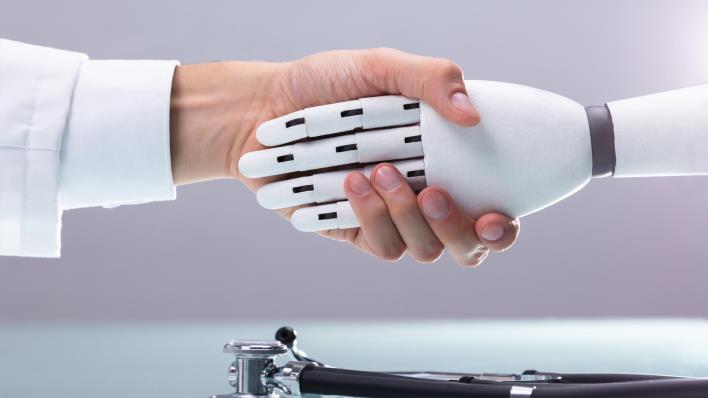Why you shouldn't be scared of the future of technology?

Just imagine what it would have felt like to witness the first steam-powered engine cultivate farmland in the early 19th century or to speak on the telephone to our transatlantic cousins for the first time in 1926. Feelings of excitement? Or a sense of foreboding as to what these new-fangled devices would replace?
What must have been thought when in 1844, C.J. Mason of Fenton in the Potteries, installed a plate making machine, capable of turning out up to 1,200 saucers a day. The machine required only non-skilled workers to operate. It certainly incited fear as there was a six-month strike by workers due to the attempts to introduce a new era of mechanisation.
It has also often been thought that only the rich would benefit from advancements in technology, Henry Ford didn’t see it this way, the Ford Motor Company continuously improved upon the efficiency of its plants, introducing moving assembly belts which increased productivity. With efficient plants, prices fell year on year and in 1916 the price of a new Ford automobile had dropped to $360, the equivalent of $7,719 in 2019 (£6,185). The motor car was quickly becoming accessible to the masses, and with sales soaring, a huge network of local dealers popped up in nearly every city in North America creating thousands of jobs. Motor clubs too were born to assist new drivers and farmers began adopting Ford vehicles for commercial use.
By improving productivity and lowering the cost of products, be they cars, washing machines, or anything, it increases workers’ buying power, people are able to buy more things to help them and generally increase quality of life.
If a machine replaces the work of a human, how can this ultimately be sustainable?
Many ponder that if there are only a finite number of jobs in the world and if machines are to carry out this work, there will be nothing left for humans. The opposing view is that this cannot be the case as we are not taking into account that humans losing their job are displaced to find alternative employment in new and emerging industries, roles which were not even in existence a few years prior.
What cannot be denied is that whilst machines have typically been deployed to carry out physical work, leaving humans to the cognitive roles, the recent advancement of machine intelligence is now really hitting its stride. In 2012 Vinod Kholsa the co-founder of Sun Microsystems predicted that 80% of medical doctors’ jobs would be lost within 20 years due to machine learning software. Scary? Well, let’s consider an awful scenario where you are suffering from a serious, but as yet undiagnosed illness. With an efficient system monitoring your medical records and with the collective ‘brain’ of tens of thousands of doctors’ experiences, patient symptoms and effectiveness of treatments, you might just stand a better chance of survival than from examinations carried out by a limited group of local medical professionals.

Technology and its effects on employment have been troubling us for years. In the 16th century Queen Elizabeth I was invited by William Lee to view his innovative knitting machine designed to reduce labour. The Queen refused to grant William a patent stating, “Thou aimest high, Master Lee. Consider thou what the invention could do to my poor subjects. It would assuredly bring them to ruin by depriving them of employment, thus making them beggars.” William Lee was further refused a patent following improvements to his machine and in later years moved to France where he would receive the patent he desperately sought from Hugenot Henry IV of France. Lee’s inventions went on to become the backbone of the knitting industry in the UK during the 18th century and his innovations made such an impact on the industry that it appears in the crest for The Worshipful Company of Framework Knitters.
Should we stop worrying and learn to love the tech?
We have been successfully innovating and developing technological advancements for thousands of years, creating and working with these to enhance products, services and daily life and as a by-product creating brand new industries in return.
Google today employs over 98,000 people, Amazon has over 640,000 employees and Microsoft over 130,000. 100 years ago, these people may have been miners, farm or factory workers operating in poorer, less regulated conditions. Regardless of your personal feelings to some of the corporations of today, it is because of their existence that we can gain access to knowledge held within libraries worldwide, and not be restricted to what is only accessible to us locally. We can readily purchase niche goods from artisan companies who can operate without the prohibitive costs of a bricks and mortar store, we can connect with family members living in far-flung countries any time we wish and, even read this very article.
In almost all sectors, UK employment rates for technology-based roles have been increasing every year. Perhaps then, as we travel to our next engagement, hurtling along at a record-breaking rate on a high-speed train, and gaze out of the window to watch fleets of drones and autonomous tractors tending to the passing farmland, we should remain calm and carry on… carry on innovating.
Latest Insights
Invest 20 minutes in a chat about growing the online presence of your business
Book a free consultation and we will audit your existing website and arrange a call to go through it with you.
We’ll explain how we can help you hit the goals that you have for your business, and how your website can achieve them.
Call us on 0121 401 1471



